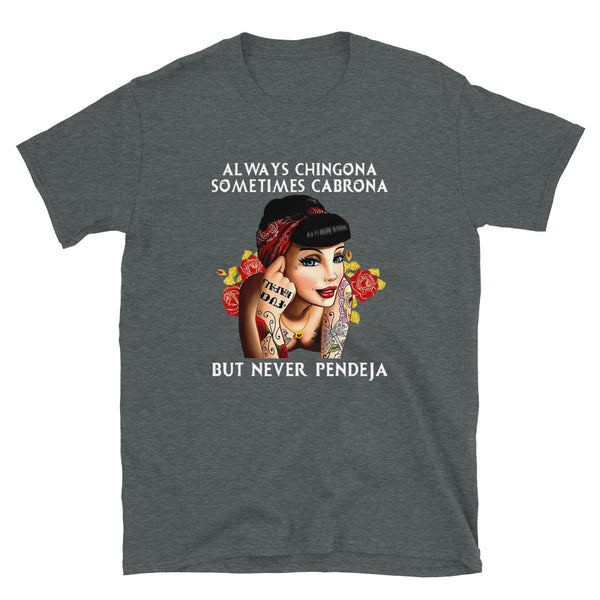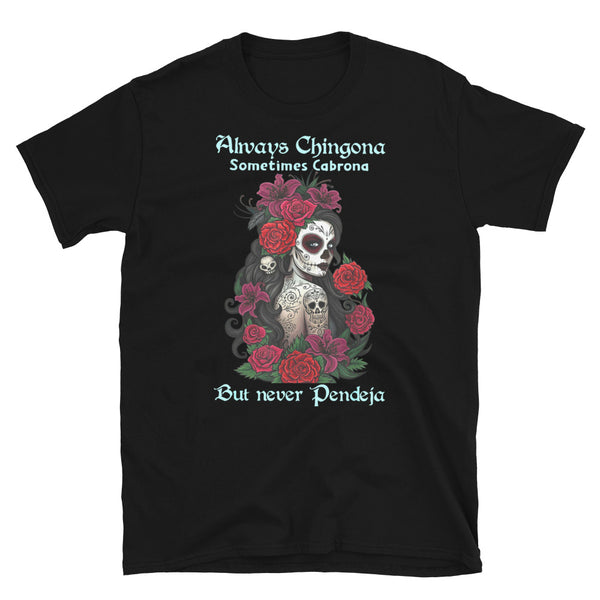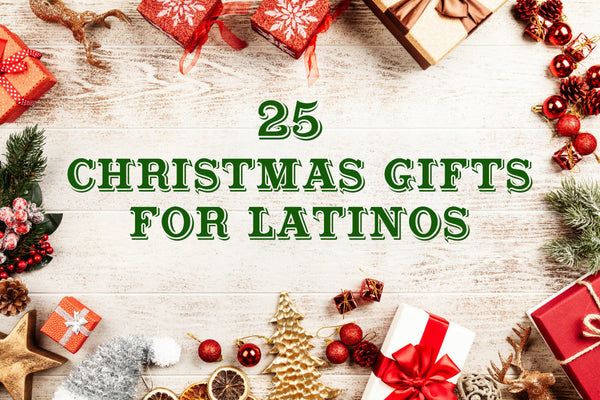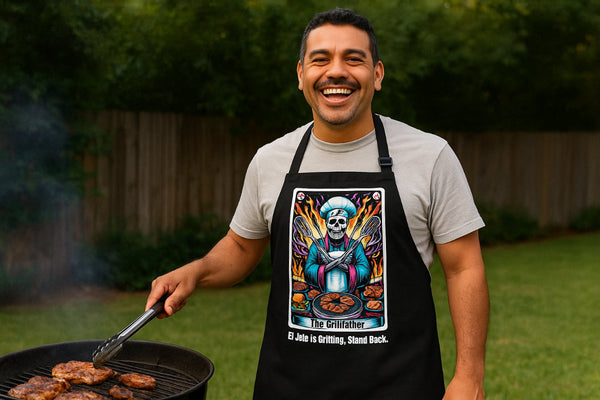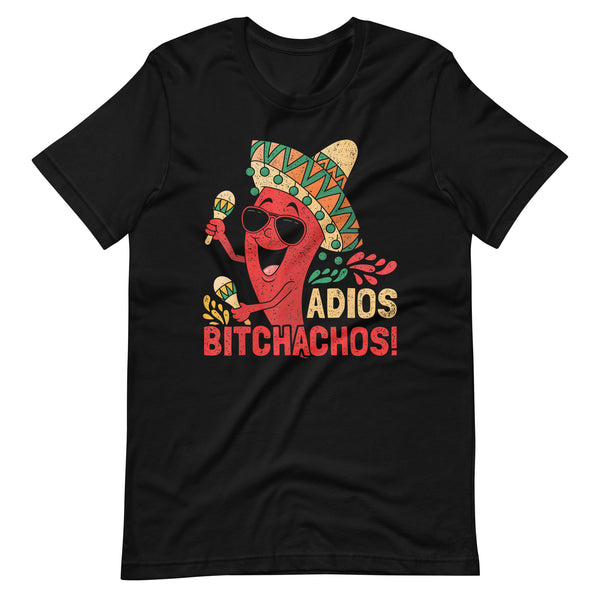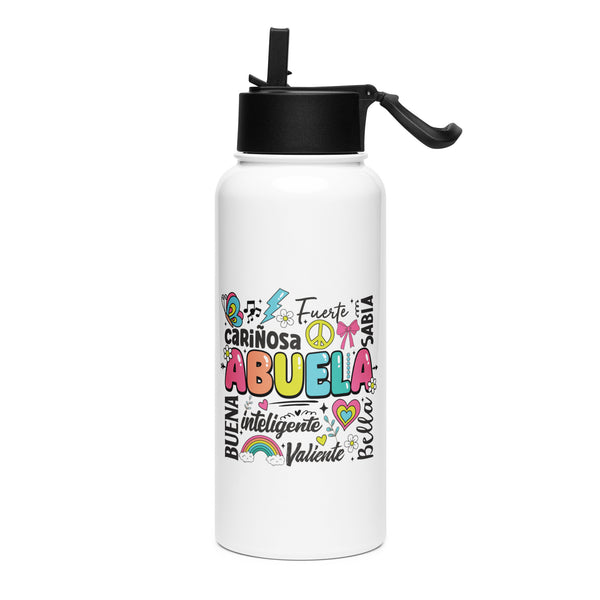
Mexican Slang Words Every No Sabo Kid Should Know
Share
Mexican Slang Words You Should Know
If you’ve ever been called a “No Sabo kid,” you know the struggle. We know the struggle as your parents might be speaking fluent Spanish but you always answered in English. It is the struggle to respond, for example probably you understand abuelita’s chisme but it is very hard for you to reply back because of lack of wording.
At House of Locos, we believe that if you are one of those No Sabo Kids then it doesn’t make you “less Latino”. To be honest it is the part of cultural identity that blends English and Spanish to Spanglish. Unique fusion of two languages and culture.
One of the best ways to reconnect with your roots is by learning slang. Why? Because slang is the language of the streets, the jokes at the carne asada, and the phrases that instantly make you feel at home. Here’s your crash course in Mexican slang words every No Sabo kid should know.
Loco Tip: Top off your outfit with cultura by checking out 7 Bold Snapback Hats that show off your Mexican style.
1. Órale
This little word can mean so many things. Yes, it has different meaning depending on in which context it has been used. For example, it means “wow,” “let’s go,” or “right on.” If someone tells you, “Órale, pues,” they’re basically saying, “Alright, cool, let’s do it.” It’s flexible and full of energy, so sprinkle it into conversations and you’ll sound instantly more connected.
Example:
-
Your friend: “We’re hitting the taco truck at midnight.”
-
You: “Órale, I’m down!”
2. Qué onda
We think of this as the Mexican version of “What’s up?” It’s casual, friendly, and works with just about anyone. Use it when greeting cousins, coworkers, or even your crush.
Example:
-
“¡Qué onda, primo! Long time no see.”
3. Chido / Chida
When something is cool, awesome, or just straight-up dope, it’s chido. If you are talking to a female then swap it with chida for feminine agreement.
Example:
-
“That new House of Locos shirt is bien chido.”
4. No manches
This phrase literally means “Don’t stain,” but nobody uses it that way. It’s more like saying “No way!” or “You’re kidding!” It can be shock, disbelief, or just playful teasing.
Example:
-
“No manches, you ate 12 tacos by yourself?!”
5. Güey / Wey
One of the most common slang words in Mexico, güey means “dude” or “bro.” But careful because it can also sound rude in some settings if you don’t know the vibe. Among friends, though, it’s pure camaraderie.
Example:
-
“Oye, güey, pass me the salsa.”
Loco Tip: Grill like a true barrio boss with the El Jefe del Asador aprons made for Latino kings of the carne asada.
6. Fresa
This one’s for the bougie kids. If someone’s fresa, it means they act stuck-up, preppy, or too fancy. It’s not always an insult but it can also just describe someone’s polished vibe.
Example:
-
“She won’t eat street tacos qué fresa.”
7. Carnal
Do you want to sound like you’ve known someone forever? Call them carnal, which literally means “brother,” but in slang it’s more like “my brother from another mother.”
Example:
-
“Gracias por helping me move, carnal.”
8. Aguas
No, it doesn’t mean “waters.” When Mexicans shout “¡Aguas!” they’re warning you: “Watch out!”
Shop Gifts for Latinos
Example:
-
“¡Aguas! The salsa is extra spicy.”
Loco Tip: Speaking of Aguas, Level up your summer look with our Latina Bikini Vibes , yes we claim that we offer the hottest Mexican-inspired swimwear styles.
9. Chingar / Chingón
Okay, this is one of those “be careful” words. Chingar is a curse word with many uses, it is usually meaning to mess up or screw something. On the positive side, chingón means something is badass or amazing.
Example:
-
“Ese carro está bien chingón.”
10. Neta
This word is pure gold. It means “the truth” or “for real.” Use it to emphasize honesty or show surprise.
Example:
-
“Neta? You really met Peso Pluma?”
11. No Mames
One of the most classic Mexican slang phrases you’ll hear is “No Mames.” Literally translated it sounds like “don’t suck” , but in reality, it has nothing to do with the literal meaning. Instead, it’s used to express surprise, disbelief, or even annoyance, depending on the tone and context.
👉 Example:
-
When your compa tells you he ate 15 tacos at the taquiza, you hit him with: “¡No mames, güey!” (No way, dude!)
-
When your boss calls you on your day off: “No mames…” (Are you serious right now?)
-
When your team scores the winning goal: “¡No mames!” (That’s insane!).
It’s a flexible phrase that every no sabo kid eventually learns because you’ll hear it in everyday conversations, movies, music, and even abuelita might let it slip when she’s shocked.
⚡ Barrio Tip: If you want to sound more polite around older family members, switch it up with “No manches” has the same meaning, but softer on the ears.
👉 Want to rep the slang in style? Check out our No Mames Way T-Shirt , yes it is premium quality, full barrio vibes, and perfect for anyone who lives la vida loca.
Why Slang Matters for No Sabo Kids
We believe that for No Sabo kids slang is more than just a vocabulary. In our opinion, it’s a way to connect with family, culture, and identity. You don’t have to speak perfect Spanish to join in. A few slang words at the right time can make you feel included in the jokes, the roast sessions, and the late-night talks around the grill.
Plus, slang is the easiest way to start conversation. You really don’t need grammar charts or conjugation drills. Instead of that you’re learning phrases people actually use in day to day life. In reality that makes conversations fun, not intimidating.
Tips to Practice Mexican Slang
-
Start small: Pick 2–3 words and use them often.
-
Practice with friends or family: Don’t be shy thinking that your cousins will probably laugh, but let it go because they will laugh but in a good way.
-
Use Spanglish: Try to mix it with English, believe us it’s natural. “That party was bien chido, bro.”
-
Watch Mexican shows or TikToks: Hearing slang in context helps it stick.
Being a No Sabo kid isn’t a bad thing, but it’s a cultural fusion. You’re navigating two cultures, two languages, and making them your own. Learning Mexican slang is a fun way to embrace that identity while connecting with your roots.
So next time someone asks you “¿Qué onda?” don’t freeze. Smile, throw in a confident “Órale, todo bien,” and let your Spanglish shine.
Because at the end of the day we believe that whether you say it in English, Spanish, or Spanglish you’re still part of the cultura.

